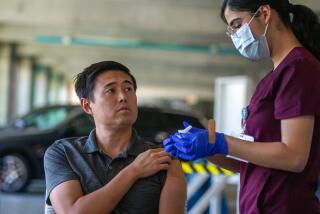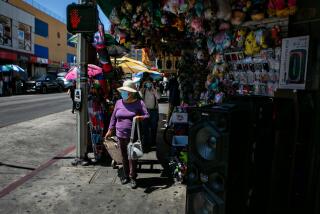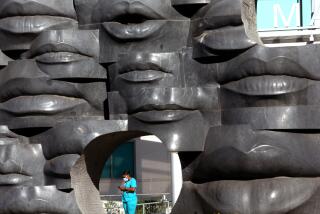California’s COVID-19 efforts fare better than national average, but hospitalizations are rising
As states throughout the country experience severe spikes in coronavirus infections, California’s case count remains mild by comparison. But as transmission and hospitalizations again increase, officials are returning to a cautionary refrain.
“The future is indeed uncertain,” Health and Human Services Secretary Mark Ghaly said Wednesday. “There’s still learning to be done, and we know this requires us to remain vigilant.”
The statewide number of hospitalizations increased by 13.5% over the past 14 days, and the number of patients in intensive care has grown by nearly 20%.
Hospitalizations are a lagging indicator for the spread of the virus. The rise follows an increase in the statewide positivity rate for infections, which grew from 2.6% to 3.3% over the past 14 days. The metric is low when compared to the national average of 6.7%, but even a slight uptick can reverse progress.
Two counties moved backward in the state’s tiered system Wednesday as Ghaly announced 5,338 new coronavirus cases. Shasta regressed to Tier 1 as case counts have continued to rise, and Plumas has moved back to Tier 3 following a similar spike. Colusa County was the only one to move forward from Tier 2 to Tier 3 for moderate risk of spread. San Diego appears headed back to Tier 1 as well.
In Los Angeles County, officials on Wednesday reported the highest single daily case count unrelated to a backlog since late August. The county, which has a lower positivity rate of 4.1% but has remained mired in Tier 1 because of a high case count, confirmed 1,843 new cases and 22 additional deaths.
The projected transmission rate has again surpassed 1.0 in L.A. County. That means the number of people who could contract the virus from one infected person is likely rising.
It’s estimated that one in 670 residents are currently infected with the virus, the county’s Health Services Department reported Wednesday. Last week, that estimate was one in 1,000.
On Monday, officials reported that the county’s seven-day average increased from about 940 new cases a day in early October to more than 1,275 as of last week.
“Our cases are, at best, stabilizing at a high number,” Public Health Director Barbara Ferrer said. “At worst, they’re going to go up.”
Officials have said that private gatherings contributed greatly to the state’s increase in cases. But Ghaly warned Wednesday against trying to pinpoint the origin of spread to one specific instance, be it gathering of friends and families or public demonstrations.
“There’s always concern when we have random large-scale mixing,” Ghaly said. “But we always hope that through our choices, and the way that we do things — not just what we do, but how we do it — we can reduce some of that transmission risk and, ultimately, transmission overall.”
More to Read
Sign up for Essential California
The most important California stories and recommendations in your inbox every morning.
You may occasionally receive promotional content from the Los Angeles Times.











